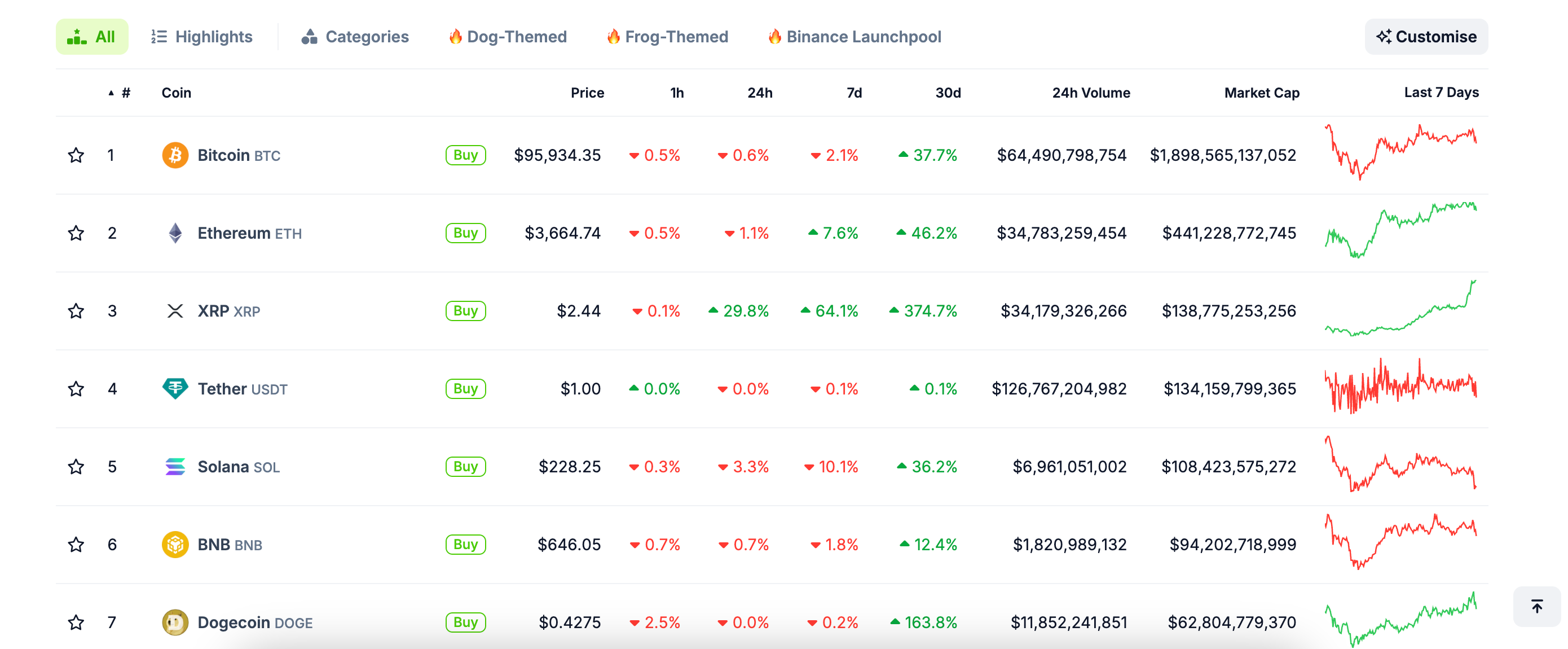
Traders looking forward to a rally during Christmas were disappointed as the markets turned out to be steady as many celebrated the holidays. Crypto community members expressed their disappointment by sharing memes, with some even employing their creativity through poetry.
On Dec. 23, Data tracker Coinstats shared an image showing positive market movements and floating the idea of a potential “Santa Claus rally.”
Is that the beginning of the Santa Claus Rally? pic.twitter.com/zf1WDNaGpm
— CoinStats (@CoinStats) December 23, 2022
However, with Bitcoin’s volatility index hitting record lows on Dec. 25, any thoughts of having a merry BTC rally on Christmas were put to a stop. Data from Cointelegraph Markets Pro showed that the top crypto hovered around $16,800 on holiday.
A community member pointed out that the lack of a rally this Christmas may be because of the controversies that surrounded centralized exchanges like FTX and Binance this year. Adding creativity to the mix, analytics tool CMM shared poetry inspired by the FTX collapse involving the firm’s former CEO, Sam Bankman-Fried.
Roses are red.
Your PNL is too.
Santa isn’t coming tonight.
SBF liquidated him too.— CMM (@CoinMarketMan) December 24, 2022
Meanwhile, another community member hinted the lack of Christmas gifts may be because Santa was affected by the crypto dips as well. On the other hand, some Twitter users expressed frustration by sharing memes.
Thanks for the “Christmas pump” Santa. pic.twitter.com/B6Q4O96kgw
— Mr. Backwards (@Coin_Shark) December 26, 2022
One shared a photo of a cat doing a thumbs-up while thanking Santa for the “Christmas pump” that didn’t happen. Another shared a photo of a psychologist supposedly treating a crypto trader for believing in a Santa rally.
Related: 4 ‘emerging narratives’ in crypto to watch for: Trading firm
While the crypto markets were at a standstill, bad actors within the space continued their work. In a recent exploit, around $8 million in assets were compromised because hackers hijacked an APK of the BitKeep wallet. The team urged its community members to transfer their funds to wallets downloaded from official sources like the Apple App Store or Google Play.
Apart from this, another exploit was conducted by hackers linked to North Korea’s Lazarus Group. The attackers allegedly launched a wide phishing campaign that targeted nonfungible token (NFT) users. The hackers launched around 500 phishing domains to lure their victims and steal their NFTs.
Read More: cointelegraph.com









 Bitcoin
Bitcoin  Ethereum
Ethereum  Tether
Tether  XRP
XRP  Solana
Solana  Dogecoin
Dogecoin  USDC
USDC  Cardano
Cardano  Lido Staked Ether
Lido Staked Ether  Avalanche
Avalanche  TRON
TRON  Shiba Inu
Shiba Inu  Toncoin
Toncoin  Stellar
Stellar  Wrapped stETH
Wrapped stETH  Polkadot
Polkadot  Wrapped Bitcoin
Wrapped Bitcoin  Chainlink
Chainlink  WETH
WETH  Bitcoin Cash
Bitcoin Cash  Sui
Sui  Hedera
Hedera  Litecoin
Litecoin  Pepe
Pepe  LEO Token
LEO Token  NEAR Protocol
NEAR Protocol  Uniswap
Uniswap  Wrapped eETH
Wrapped eETH  Aptos
Aptos  Internet Computer
Internet Computer  USDS
USDS  Cronos
Cronos  Ethereum Classic
Ethereum Classic  POL (ex-MATIC)
POL (ex-MATIC)  Artificial Superintelligence Alliance
Artificial Superintelligence Alliance  Ethena USDe
Ethena USDe  Bittensor
Bittensor  Render
Render  Filecoin
Filecoin  Algorand
Algorand  Arbitrum
Arbitrum  Dai
Dai  WhiteBIT Coin
WhiteBIT Coin  Cosmos Hub
Cosmos Hub  Stacks
Stacks  Celestia
Celestia  Immutable
Immutable